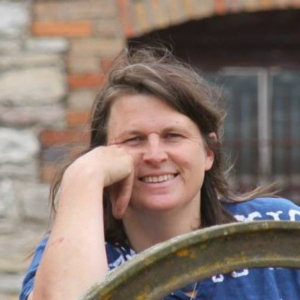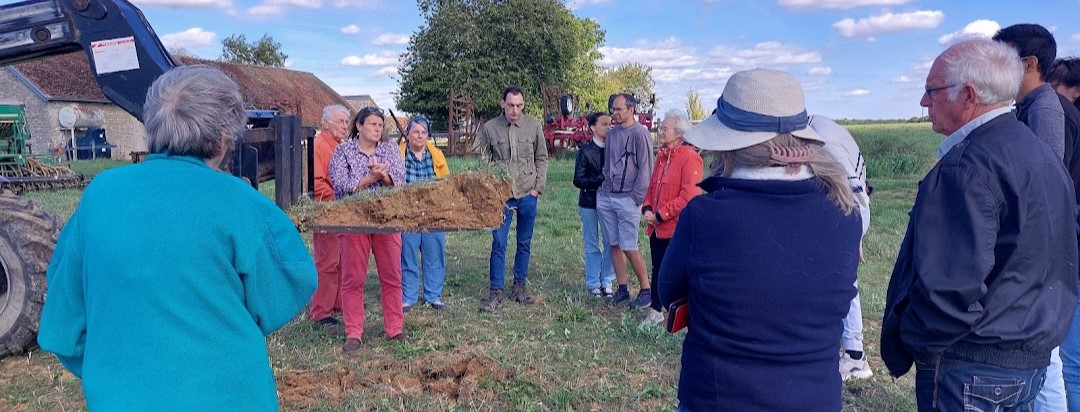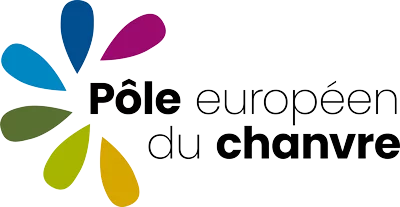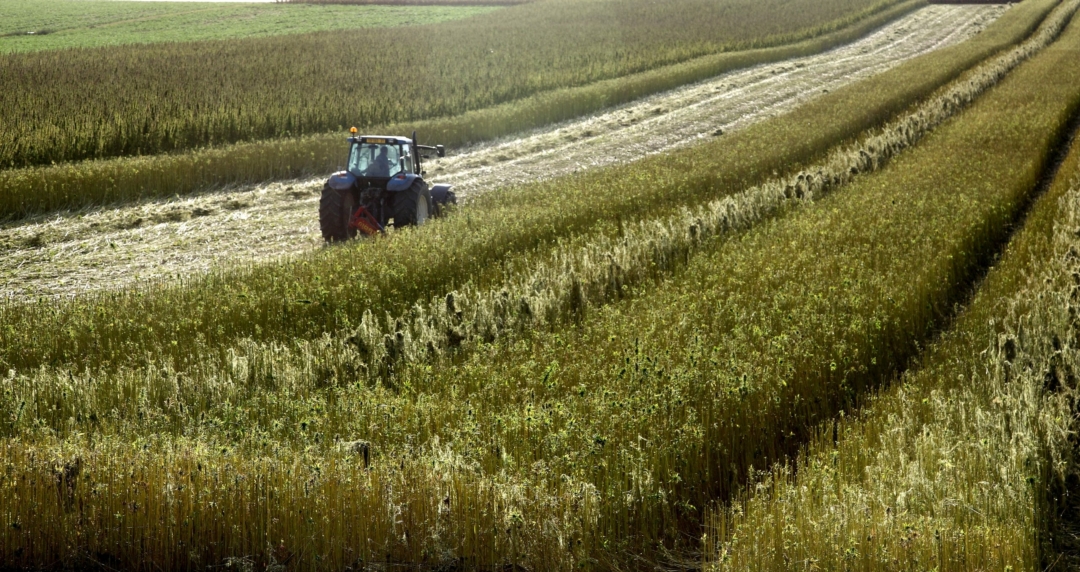
« Today, we find hemp in construction, textiles, food… It has long been denigrated and then reintegrated. We had forgotten all of this, and now we must adapt the industrial tool to its transformation. ».
Diane Masure knows hemp well. Passionate and inexhaustible about agricultural topics, after years spent in Sicily and Portugal for her consulting work, she settled in Aube in 2013 to take over the 115-hectare farm of her husband’s family. Wheat, barley, rapeseed, lentils, mustard, and other grains are cultivated there. « Hemp is a family story,” explains the farmer. “We have always grown it and are completely autonomous for harvesting, cutting, and drying. And like for all other crops, we prioritize proximity and short supply chains ». Thus, hemp seeds and straw go to La Chanvrière for processing.
Since 2015, Diane Masure has also been a member of the board of La Chanvrière. « I never imagined the richness of the farming profession ». She also regularly organizes open days at her farm during the European Heritage Days to raise public awareness about the role of agriculture in preserving soil and biodiversity heritage and promoting soil conservation agriculture. She also leads the APAD network, the association for the promotion of sustainable agriculture, where she serves as vice-president*.
The 4 per 1000 for food, environmental and climate security
Diane Masure has committed herself to soil conservation agriculture (ACS), which is based on three complementary pillars :
- permanent soil cover with the retention of residues on the surface and intercrop cover to promote soil structuring, the input of organic elements, and biodiversity enhancement,
- no-till seeding to avoid disrupting its biological activity and to promote soil porosity,
- crop rotation diversity to influence species complementarity.
Diane Masure is involved in the 4 per 1000 initiative (derived from COP 21) for carbon sequestration. Increasing carbon storage in soils by 4 per 1000 or 0.4% annually could ultimately halt CO2 concentration in the atmosphere on a global scale. Soil conservation agriculture aligns with this goal, facilitating an increase in soil organic matter (and hence its carbon stock) beyond the 4 per 1000 objective. This approach also provides various ecosystem services: biodiversity, pest reduction, reduced inputs, soil fertility and resilience, and decreased greenhouse gas emissions, among others.
« Hemp is a fantastic crop,” explains Diane Masure. “It leaves excellent soil structure without the use of phytosanitary products. However, it demands a lot of attention during harvest in terms of labor and depending on its intended use. The advantage of hemp is its ability to sequester carbon in something enduring, such as construction, where the carbon is then captured in a wall, for instance. Using it in textiles promotes a more virtuous chain compared to cotton, for example, which requires pesticides ».

A global supply chain with agriculture as the starting point
The ambition of the European Hemp Hub, where Diane Masure is involved, is to promote the cultivation of hemp and create an ecosystem that brings together producers, processors, and manufacturers. « It is absolutely essential that agriculture be represented in all commissions,” says Masure. “This allows for great brainstorming and knowledge sharing that brings the industrial world closer to that of farmers. On a farm, only an average of 10% of hemp can be grown in a rotation. To increase volumes and meet the needs of manufacturers, we must therefore increase the number of farmer producers. And the more we increase the added value of hemp, the more it will interest farmers who will benefit from better remuneration. The European Hemp Hub creates a partnership and trust relationship between the actors. The market is developing. Hemp is in high demand. There is no reason for this to stop ».
*The APAD: a non-profit association for the promotion of sustainable agriculture has been in existence for more than 20 years. It promotes soil conservation agriculture (SCA). The association has 1,000 members, agricultural professionals, federated into 15 associations across the national territory. It has implemented a carbon project that allows companies to voluntarily offset their emissions. https://www.apad.asso.fr/
The 4 for 1000 or how agriculture can save the world by capturing carbon in the soil https://agriculture.gouv.fr/animation-sequestration-du-carbone-comprendre-le-4-pour-1000-en-3-minutes


